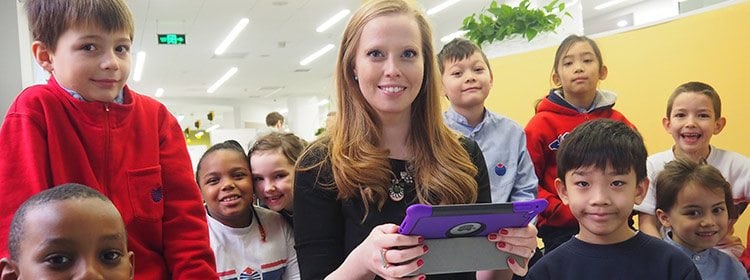Why should students study a foreign language? Beyond classroom benefits, learning a second language offers real-world advantages that shape how students see the world and engage with others. Here are some of the top reasons why language learning is one of the most valuable skills students can develop — according to students, parents, and educators in international communities.
It Helps You Develop Confidence
Learning a foreign language is a deeply rewarding process. It helps students push beyond their comfort zones, confront fears, and grow in self-awareness. Whether holding a conversation with a native speaker or simply navigating a new city abroad, language builds the courage to connect — and the confidence to lead.
It Increases Brain Power
Numerous studies show that learning another language strengthens cognitive ability. Psychologists have found that bilingual students tend to outperform their monolingual peers on standardised tests in math, reading, and vocabulary. Language study also enhances memory, attention span, and mental flexibility — skills that benefit students across subjects.
It Deepens Travel Experiences
Travel becomes more enriching when students can communicate, even minimally, in the local language. Saying hello, asking for directions, or ordering food in the native tongue opens doors to authentic experiences and unexpected opportunities. Language gives travelers a window into local history, culture, and daily life — making every trip more meaningful.
It Boosts Career Opportunities
In a globalized workforce, language skills are a competitive advantage. Companies increasingly seek employees who can communicate across cultures. Between two equally qualified candidates, the multilingual applicant often has the edge. Research also shows that bilingual professionals may access higher-paying roles and international assignments more easily than monolingual peers.
It Leaves an Impression
Speaking a foreign language — whether at a café, during travel, or in casual conversation — can leave a lasting impression. While impressing others shouldn’t be the only motivation, confidently using another language demonstrates dedication, curiosity, and cultural intelligence.
It Opens Doors to Studying or Living Abroad
Dreaming of life in another country? Language learning is a gateway to international study programs, volunteer work, and professional opportunities abroad. Students who know a second language are better equipped to adapt, connect, and succeed in new cultural environments.
Celebrating Multilingualism and Mother Tongue
Multilingual education isn’t just about learning new languages — it’s also about valuing and preserving native ones. Celebrating International Mother Language Day (recognized by UNESCO) is one way schools around the world promote linguistic diversity and cultural heritage. Events may include language parades, storytelling, traditional songs, and cultural workshops — all designed to foster pride in students’ linguistic roots and global connections.
Final Thoughts
Learning a foreign language is about more than mastering vocabulary and grammar. It’s about unlocking new perspectives, forming deeper relationships, and preparing for a global future. Schools that support both second language acquisition and native language celebration equip students with the tools to thrive in a connected world.
Below, schools share how they promote language learning — through immersion programs, cultural events, and community celebrations that inspire students to become multilingual, open-minded citizens of the world.
